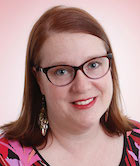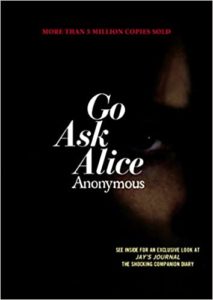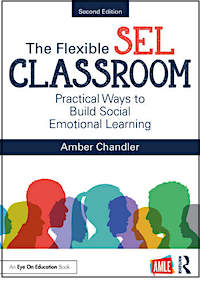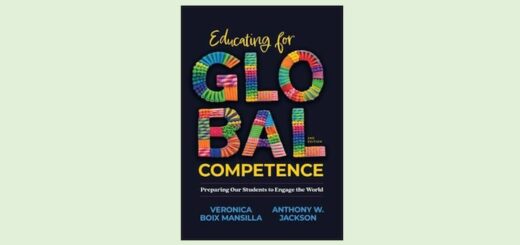How a Banned Book Bred Lifetime Readers
By Amber Chandler
 Rebellion is a tired teenage trope, but as most tropes do, it holds up over time. I was discouraged to watch Maus, a classic graphic novel that I have taught many times, become a banned book in certain school districts recently. Then, beautifully, it rose to best selling status, as described here in Smithsonian Magazine.
Rebellion is a tired teenage trope, but as most tropes do, it holds up over time. I was discouraged to watch Maus, a classic graphic novel that I have taught many times, become a banned book in certain school districts recently. Then, beautifully, it rose to best selling status, as described here in Smithsonian Magazine.
There has been great alarm, and rightfully so, over books being banned by school boards and an increasingly invasive wave of parents who wish to know, in advance, everything we plan to teach in classrooms.
I’ll give these parents the benefit of the doubt, and believe that they are only interested in their child’s well-being. If so, perhaps they should take a tip from the story of Tina’s mom, below, and participate with their children in their child’s education. If not, there could be another wave of Risqué Reading – this time with the full force of the internet in middle graders’ pockets.
The Story of Tina and her Mom
About a decade ago, Tina, a girl on my 8th grade team, asked me my opinion of the frequently banned book Go Ask Alice. I answered honestly, “I really liked it. Lots of mature topics, but it is very compelling. I’d say more of a high school reading choice. Ask your mom or dad what they think.”
To my surprise, a few days later I got a call from her mom, asking for advice. Should she let Tina read it? The mom knew the content, but she wasn’t sure what to do. I was surprised that my student had actually discussed it with her parents. This was, of course, before students had access to absolutely everything via their cell phones, so it might play out differently nowadays.
 Anyway, as I chatted with the mom, it occurred to me that I was really against limiting student choice in reading. My own children were little, six and three, so I hadn’t had this situation occur in my own family yet. As I was talking with Tina’s mom, it surprised me a bit to say that I wouldn’t limit her reading.
Anyway, as I chatted with the mom, it occurred to me that I was really against limiting student choice in reading. My own children were little, six and three, so I hadn’t had this situation occur in my own family yet. As I was talking with Tina’s mom, it surprised me a bit to say that I wouldn’t limit her reading.
My mom was a voracious reader growing up, and I followed in her footsteps. I was hooked on the scandalous V.C. Andrews books from a ridiculously young age, so I guess my answer shouldn’t really have surprised me.
Tina’s mom agreed to let her daughter read Go Ask Alice as long as they talked about it after every other chapter. Tina pretended to be extremely put out by this, but I could tell that she was thrilled to be allowed to read the book, and she was happy her mom was taking the time to talk it over with her.
This event started what I later dubbed “The Year of Risqué Reading.” Tina devoured the book. It got passed around from girl to girl in 8th grade, some of whom reported that their parents “would kill them” if they knew.
Those girls were the ones I had to remind to put the book away while I was teaching. Those girls, the ones who were sneaking around, couldn’t get their hands on “risqué reading” fast enough. To be clear, they were simply reading books featuring content that they could see on daytime television. I know this because I also grew up on Days of Our Lives and Guiding Light. As for Tina, she seemed satiated by her experience with Go Ask Alice.
Readers for a lifetime
The fact is, and was, that telling anyone what not to read only makes it more intriguing. The best thing that could have happened to my students’ literacy that year did happen: a banned book was rebellion, and they were up for it.
Finding that they loved to read for pleasure was the result of “The Year of Risqué Reading,” and I loved to watch them become absorbed in books that I adored but would be discouraged from teaching.
They’d ask me my opinions, and we’d chat informally. At one point, I was having lunch with a group of girls to talk about all the books they were reading independently, for pleasure, that were above grade level. These were some kiddos who didn’t do the required reading for my class. I could see they were becoming readers for a lifetime.
 Amber Chandler is a National Board Certified middle school teacher and author of The Flexible ELA Classroom (Routledge/MiddleWeb, 2017). A new edition of her second book The Flexible SEL Classroom: Practical Ways to Build Social Emotional Learning in Grades 4-8 will be published in March 2022.
Amber Chandler is a National Board Certified middle school teacher and author of The Flexible ELA Classroom (Routledge/MiddleWeb, 2017). A new edition of her second book The Flexible SEL Classroom: Practical Ways to Build Social Emotional Learning in Grades 4-8 will be published in March 2022.
Amber was the AMLE 2018 Educator of the Year and a finalist for the 2022 New York State Teacher of the Year. She blogs for ShareMyLesson, Getting Smart and AMLE and wrote a blog The Flexible Classroom for MiddleWeb (2016-18). She is also a SEL consultant and adjunct professor.
Follow Amber on Twitter @MsAmberChandler and visit her website for practical tips and resources.


































